
To Italians, he is Anselm of Aosta; to the French, Anselm of Bec; to the English, Anselm of Canterbury. If you’re a Catholic, you can dodge the nationalism by calling him ‘Saint Anselm’. But whatever you call him, Anselm is probably the most important thinker of the eleventh century, and he was responsible for one of the big philosophical ideas about God which is still discussed today: the ontological argument for God’s existence.
Anselm was born about 1033 in Aosta in northern Italy. At some point he quarrelled with his Lombard noble father Gundulf, and began the life of a wandering scholar. In eleventh century Europe, abbeys and monasteries were the only institutions offering any sort of teaching; they were the nearest things to universities. So Anselm travelled through Burgundy and the Loire valley before reaching the Norman abbey of Avranches, in the north of France. Then in 1059 Anselm moved from Avranches to the abbey of Bec.
Bec was a peculiar abbey. It had been founded twenty-five years before by Herluin, who was still its abbot. Herluin, a former knight, was committed to a life of poverty. In 1041, Lanfranc, another Italian, moved to Bec from Avranches, where he had been a teacher. Herluin eventually convinced Lanfranc, who had reverted to being just a humble monk, to resume teaching – and so the abbey of Bec, founded on principles of poverty by a knight who was no intellectual, became a centre of learning, in which Lanfranc was its prior, in effect, the abbot’s deputy.
Anselm studied under Lanfranc, and in 1060 was invested as a monk. Lanfranc, meanwhile, having become a principal counsellor to Duke William of Normandy (later William the Conqueror), left in 1063 to become the abbot of the men’s monastery at Caen. This led to Anselm’s becoming the principal teacher at Bec. In 1078, he became its abbot, too.
Anselm the Teacher
This story is from the October/November 2024 edition of Philosophy Now.
Start your 7-day Magzter GOLD free trial to access thousands of curated premium stories, and 9,000+ magazines and newspapers.
Already a subscriber ? Sign In
This story is from the October/November 2024 edition of Philosophy Now.
Start your 7-day Magzter GOLD free trial to access thousands of curated premium stories, and 9,000+ magazines and newspapers.
Already a subscriber? Sign In

FALLING DOWN
Thomas R. Morgan considers how personal identity is maintained, and how it is lost.
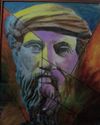
Pythagoras (570-495 BCE)
Daniel Toré looks beyond the mathematician to the philosopher.
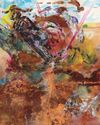
Wordsworth & Darwin
Christine Avery wonders whether poetry can help us to deal with science.

Plants & Philosophy
Caroline Deforche sees similarities between gardening and philosophising.
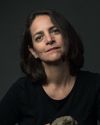
Dr.Gindi sculptor, has a philosophical conversation with Richard Baron about sensation, life, infinity and, you guessed it, sculpture.
Dr. Gindi is one of Switzerland's foremost sculptors, whose work has been exhibited in many countries.
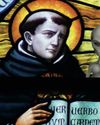
Thomas Aquinas on Extraterrestrial Life
Babatunde Onabajo tells us why Aquinas did not believe in aliens.
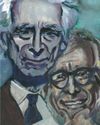
The Fire This Time
Tim Madigan on Ray Bradbury, Bertrand Russell and Fahrenheit 451.
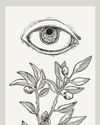
Trust, Truth & Political Conversations
Adrian Brockless wants a recognition of human value in political debate.
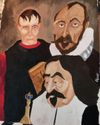
Philosophy & The Crown
Vincent Di Norcia on monarchy and stability.

Technologists & Ethicists
Stephen L. Anderson laments inadequate moral insight among tech leaders.